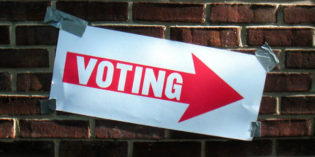Elections and electoral systems

Lessons from Ireland’s recent referendums: how deliberation helps inform voters
Ireland’s 2015 referendum on equal marriage and its 2018 one on abortion both had their origins in deliberative assemblies. But did such processes influence the result? The evidence suggests that the information and debate that came with these assemblies had an impact both on vote choice and turnout, writes Jane Suiter.

Campaign spending and voter turnout: does a candidate’s local prominence influence the effect of their spending?
At election time, political candidates in Britain routinely spend significant sums of money on their local campaigns. Generally speaking, the more individual candidates spend, the higher turnout in that constituency. But while some candidates are major contenders in their area, many candidates who are unlikely to win also spend substantial sums on their campaigns. By analysing candidate spending data from the 2010 general election, Siim Trumm, Laura Sudulich and Joshua Townsley find that the money spent by viable contenders has a greater impact on voter turnout than spending by candidates who are unlikely to win.

Should the rest of the EU follow Austria in reducing the voting age to 16?
For the last decade, Austria has been the only country in the EU that allows voting at the age of 16 at all political levels. Paul Schmidt assesses whether this could offer a future model for the EU, and the possible lessons that can be learned from the Austrian experience.

The results of the 2018 voter ID pilots and why this is not the time for a national roll-out
Ben Stanford looks at the results of the voter ID pilot scheme used in the 2018 local elections in England and the potential implications of a national roll-out. He concludes that, given the current levels of voter apathy, such fundamental reforms may end up discouraging even more individuals from voting.

How democratic is the Westminster ‘plurality rule’ electoral system?
In the first part of our 2018 Audit of UK Democracy, Patrick Dunleavy examines a topic of foundational importance for any liberal democracy – how well does the electoral system (in this case the Westminster plurality rule, aka ‘first-past-the-post’) convert votes into seats? A sudden growth in two-party support in 2017 allowed the UK’s ancient voting system to work far more proportionately. But is this outcome a one-off blip, or the start of a new long-term trend?

Unionism versus self-interest: would MPs support Proportional Representation?
In light of the electoral divergence between the UK’s constituent nations, and the real danger of a break-up of the Union, Klaus Stolz makes the case for Proportional Representation. He explains, however, that reform will be a choice between the collective self-interest of Labour and Conservative MPs on the one hand, and their ideological values on the other.

‘Use it or lose it?’ Why the ability to vote shouldn’t depend on actually doing so
The US Supreme Court has ruled that Ohio’s controversial plans to remove habitual non-voters from the electoral register is constitutional. Christopher Stafford argues that such a measure has serious consequences for encouraging democratic participation – and there are better ways of ensuring the accuracy of the electoral register.

Maine’s election shows that ranked-choice voting is popular in the US right now. But we have been here before.
Voters in the Pine Tree State have chosen to continue using ranked-choice voting in state-wide elections. Jack Santucci explains that ranked-choice voting is likely to be adopted in polarised political environments, creating majorities where there currently are none, and as a reaction to unpopular politicians who have won without majorities of votes. He reminds us that the current era of polarisation is similar to that of one hundred years ago, the last time ranked-choice voting was in fashion.




 Democratic Audit's core funding is provided by the Joseph Rowntree Charitable Trust. Additional funding is provided by the London School of Economics.
Democratic Audit's core funding is provided by the Joseph Rowntree Charitable Trust. Additional funding is provided by the London School of Economics.